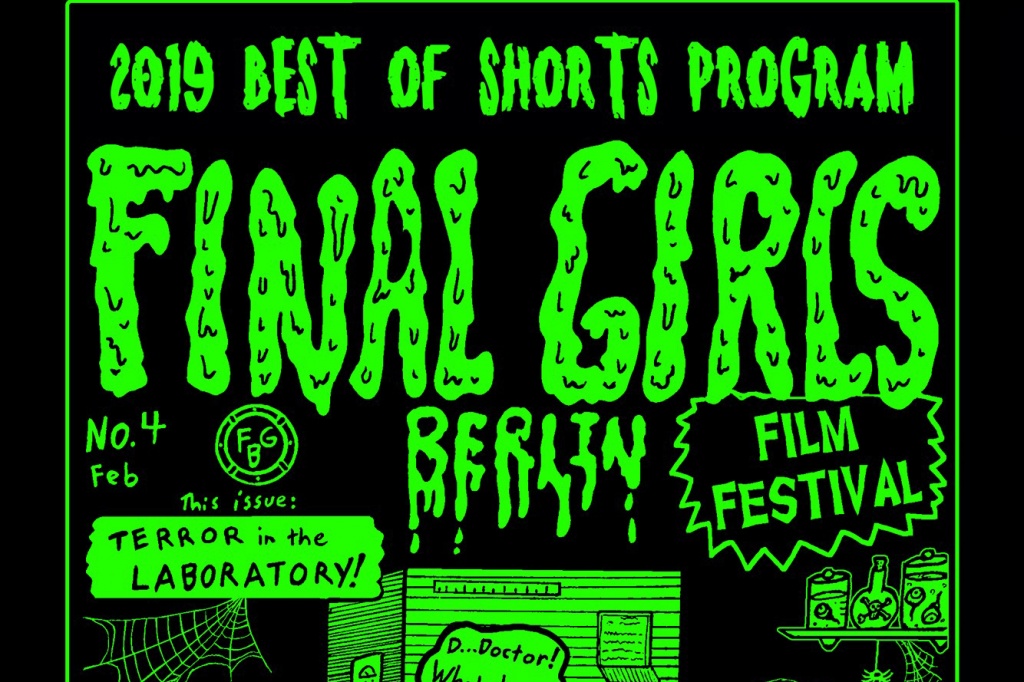For the second year running, Final Girls Berlin Film Festival, a showcase of women and nonbinary filmmakers in horror, will grace PhilaMOCA’s big screen with a selection of the best short films from its 2019 season.
Ahead of the event, we caught up with the brains behind the festival, Sara Neidorf. A Greater Philadelphia local, Neidorf indulged us with the details of her love-of-horror origin story, exploring her queerness via Berlin’s film scene, and why she’ll be back in Philly next week to host the event.
PGN: What was your experience of Philly’s LGBTQ-plus community when you lived here?
SN: I grew up in South Jersey, just over the Ben Franklin Bridge and went to undergrad at Bryn Mawr College, so I’m from the Philly area. I went to QFest a few times as a teen and college student, frequented Giovanni’s Room (including some… charmingly awkward open stage events) and PAT, and also volunteered at the very queer-friendly Girls Rock Philly as a drum coach for a few summers. But otherwise, I didn’t really have enough time to fully explore the queer community as an adult, since I moved to Berlin when I was 22. Most of my queer coming of age happened at Bryn Mawr, which not so secretly has a pretty big queer population, so I guess I found most of my queer community there before moving to Berlin, which is home to an amazingly diverse and international queer community, or communities, sprinkled throughout the city.
PGN: Can you describe Berlin’s film scene and how you got involved?
SN: I’m still impressed with it even seven years after moving here. There are a ton of film festivals, including smaller, niche festivals, film collectives, independent cinemas and unconventional screening spaces. I really found my community when I joined a few friends organizing Queer Film Klub, while also volunteering for XPOSED Queer International Film Fest, and briefly working as part of the programming team for Entzaubert Queer DIY Film Fest. All were unique in their own way, catering to different pockets of the queer community, some showing bigger budget works, some showing underground, cult/camp gems and others showing new, no-budget, DIY work. Nowadays even more queer-centric film festivals are popping up, including the Lesbian & Non-Binary Film Fest, Berlin Feminist Film Week, and even a newer fest that’s dedicated to showing films dealing with queerness and disability, Queer Access Film Fest.
PGN: Final Girls Berlin is now in its fifth edition, how did the festival get started?
SN: It was a joint effort of Elinor Lewy, Lara Mandelbrot and myself — three horror nerds looking to explore the work of women in horror. We knew about other women-in-horror festivals like Scream Queen Fest in Tokyo and Viscera in L.A. and felt that Berlin’s film scene was missing such a festival. In fact, we’re the only festival of the sort in all of Germany. As a genre, horror tends to be quite marginalized and viewed as low art, and female (and non-cis-male) filmmakers in general face so many obstacles to getting their work funded and shown. So, it’s important to us that these kinds of festivals exist.
PGN: What do you find enticing about horror as a genre?
SN: I grew up with a mother who loves horror, so it’s always been like home turf for me. She’s a very analytical person, so even when watching films like Rosemary’s Baby as a 12-year-old, she and I discussed the sociopolitical implications of Rosemary’s institutionalization and loss of control over her own body. From then on, I realized how rich a genre it is, how much depth it can have, and how it can viscerally confront us with our fears and with society’s dysfunctions.
PGN: What attracted you to screening at PhilaMOCA?
SN: PhilaMOCA has always been a home for genre cinema, B-movies, cult classics and other sorts of underground events, and always with a friendly and welcoming vibe. For me, it was a no-brainer as a choice of venue. I mean, come on! It’s exterior is a giant mausoleum. What could be better for horror? We screened there last summer, and if all goes well again, it would be nice to make an annual tradition out of it.
PGN: How do the writers and directors in this program explore queerness through their films?
SN: What I appreciate is, queerness is rarely the focus of the horror or the primary conflict in the film. It’s often just a detail — a significant one in making queer viewers feel seen and giving us a point of identification — but nothing that’s made into spectacle. For example, in the film “Instinct” (directed by Maria Alice Arida), a young female performance artist seduces an older female gallery owner, and they develop a strange and sinister flirtation that goes awry in unexpected ways. The queerness definitely enhances the sense of taboo and illicitness of what’s going on, but it’s not mentioned or thematized in any direct way.
PGN: You’re traveling from Berlin to Philadelphia for this screening. Why did you want to be on site to answer questions?
SN: I really enjoy being on site at whatever remote screenings I can manage because it’s great to be part of the dialogue surrounding these films. Usually, I give a short intro before the program and then stick around for questions and comments after. It’s interesting to see how people respond, which films stir up controversy, which films get the wildest audience response during the screening and which films make the biggest impression after. Listening to the laughs and groans of discomfort during “Entropia” (directed by Marinah Janello) is often enough to make the whole experience worthwhile.
Final Girls Berlin Film Festival – 2019 Shorts Program shows at 7:30 p.m. June 26 at PhilaMOCA, 531 N. 12th Street. Tickets are $10. Running time is 100 minutes.

